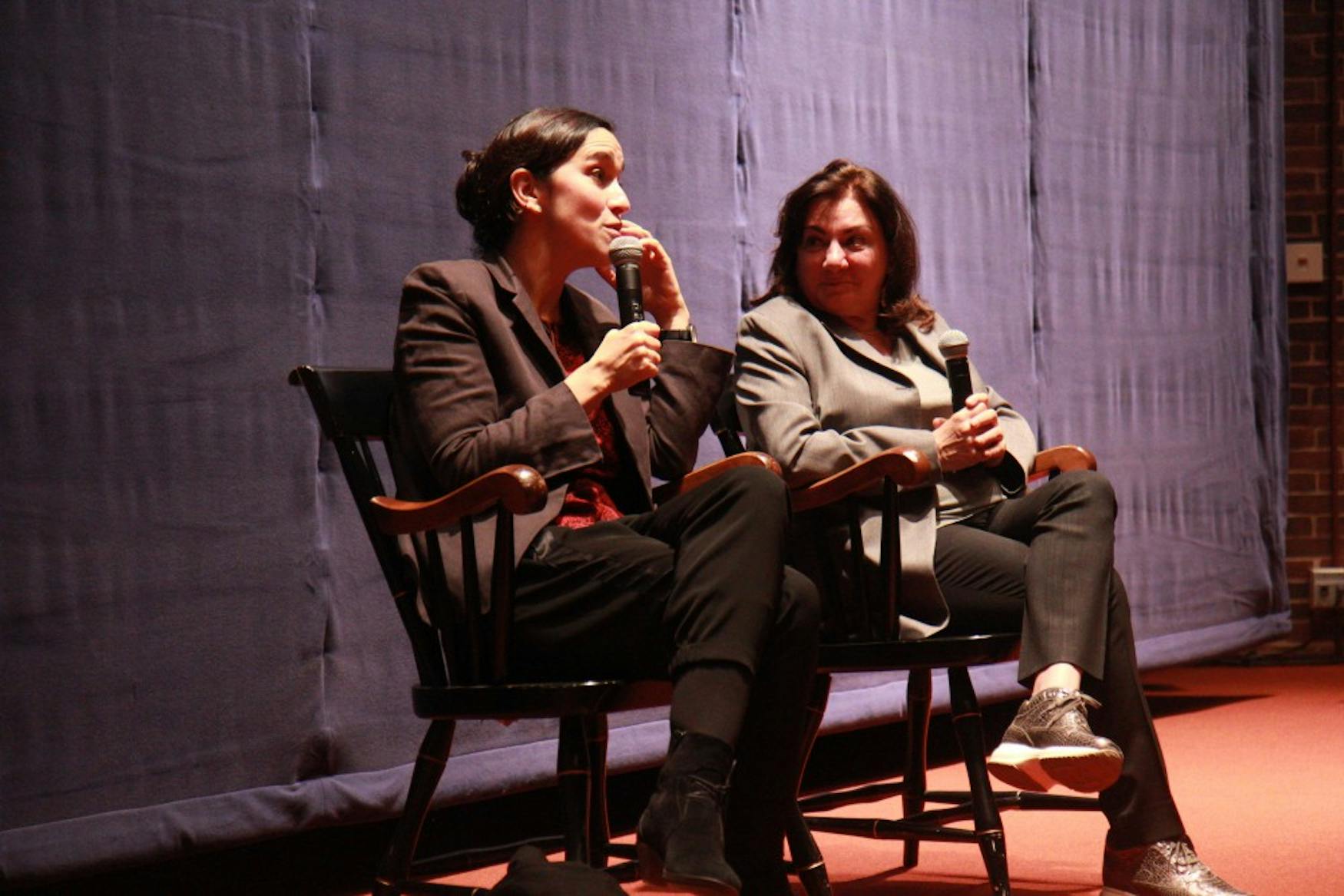‘Suffragette’ director speaks on suffrage and women in film at early screening
“Are you a suffragette, Mrs. Edith?”
“I consider myself more of a soldier,” she replies. “As Ms. Pankhurst says, it’s deeds, not words, that will get us the vote.”
War is the context under which “Suffragette,” a British historical period drama, presents the British women’s suffrage movement. A pre-theatrical screening of the film, which opened this weekend in theaters, was held in Wasserman Cinematheque on Thursday and included a talkback with the director of the film, Sarah Gavron.
The film stresses that the fight to get the vote for women was not won through peaceful petitions or debates between men in law offices. Rather, it was a fight in every sense of the word. The film displays the immense strategic planning from the suffragettes and from the opposition, the secret meetings, the destruction of property, the riots, the protests, the violence and even the death involved in women getting the vote. Scenes of law-offices covered in evidence — pictures and maps all linked with red yarn — are reminiscent of war-rooms. Maud Watts (Carey Mulligan) the fictional suffragette at the center of the film, explains to Inspector Arthur Steed (Brendan Gleeson), an opponent of women’s suffrage, that women in the movement have to break things and be disruptive because war is the only language men listen to.
Mulligan takes on the persona incredibly well of a working woman who has been given nothing but hardship in life but who still sees the potential for change. In the talkback, Gavron commented that the film intentionally centered around a working woman rather than an elite suffragette, because working women had the most to lose and it is important to recognize their sacrifices.
With limited options, Maud has worked in a laundry for inadequate pay since she was seven. Working under unhealthy sweatshop-like conditions, she is emotionally and sexually harassed by the manager.
Once she joins the suffragette movement, she is threatened by her husband, kicked out of her house, denied all access to her son, and has no say when her husband puts him up for adoption. While fighting for the vote, she is beaten at rallies, goes to jail several times, takes part in hunger strikes and is ultimately force-fed, which is now considered to be a form of torture. Maude is a fictional character, but as Gavron said, “She’s a composite character drawn from really three different working women and a collection of snippets, so everything that happens to her, happens to a real women we found in our research.”
The image of the suffragettes in the film were women who faced the law with the mentality that if the laws are not fair, they should break them and make new ones. Meryl Streep offers hope in her brief cameo as Emmeline Pankhurst, the real-life leader of the British suffragette movement. Helena Bonham-Carter plays a strong Edith Ellyn, a fictional character based off of Edith Garrud, who acts as a ringleader in several of the suffragettes more dangerous plans.
The film does not only advocate for female empowerment, but can be considered a product of it as well. It was made by an almost entirely female production team, from the producers to the writers to Gavron herself.
When asked about the imbalance of male to female directors in the film industry, Gavron commented how she has often been the only woman in a room, and that it takes a lot of confidence. She added that the number of films directed by women is between one and ten percent, which, she said, is really more like one.
Yet, Gavron believes that change is coming: “I think the tide will change because finally people are being vocal about it, and there is more awareness of it than I ever remember being in my whole career about the lack of women behind the camera, and about the lack of diversity behind the camera.”
The ending credits include a timeline of when women have received the vote around the world. As the years near 2015, it becomes evident how recent womens’ voting rights — a thing that we view as a part of history — are for many other places in the world. Gavron commented that she hopes that her film will help in some extent to further the conversation about women’s rights around the world.




Please note All comments are eligible for publication in The Justice.